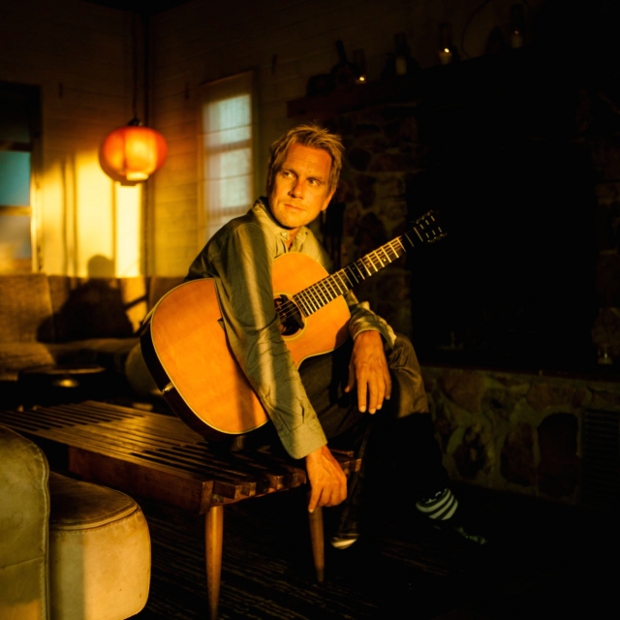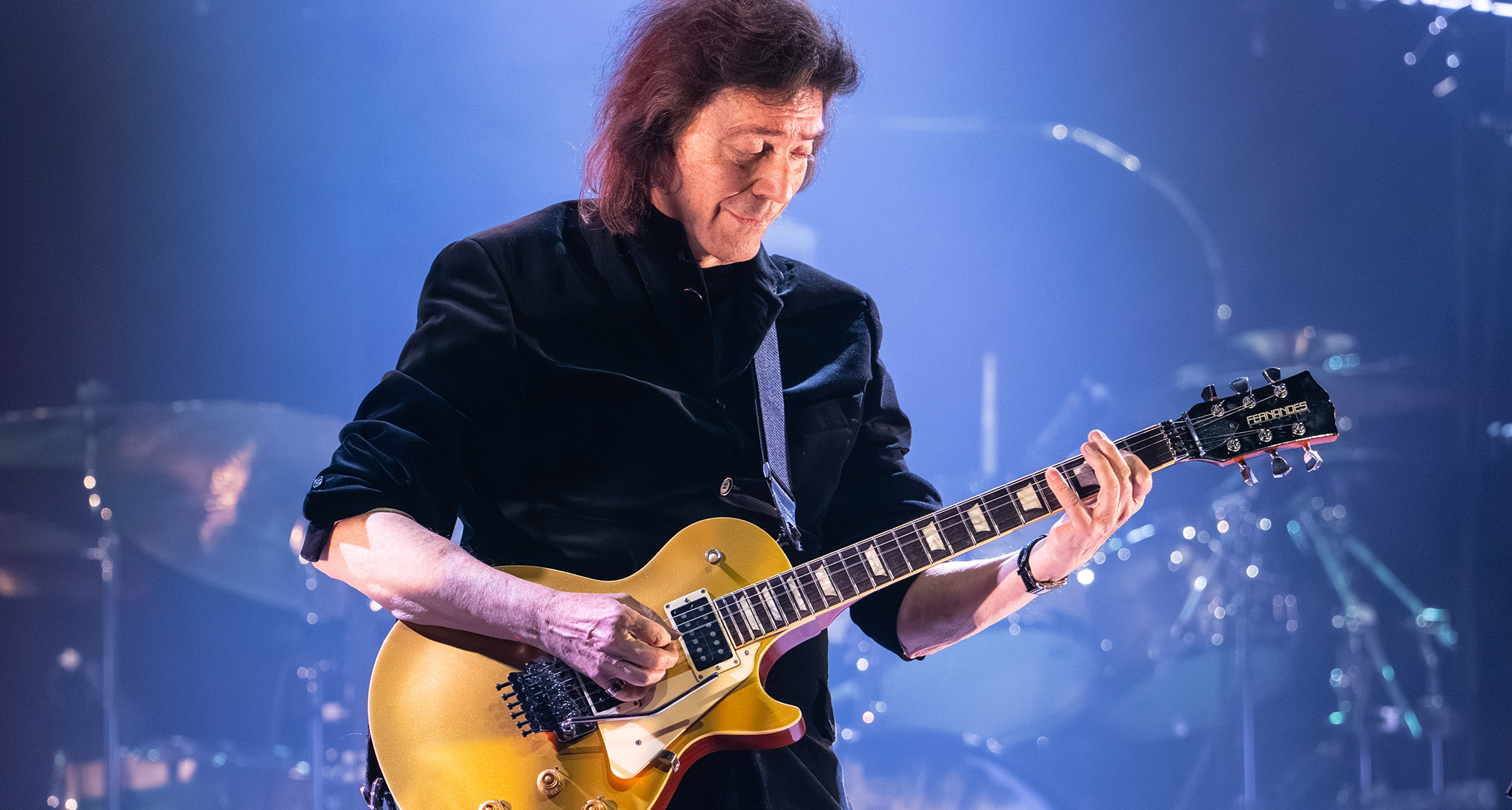Songcraft: Singer-Songwriter David Poe Discusses His New Album, 'God & The Girl'

Credited by Rolling Stone as having given "the singer-songwriter genre a much-needed jolt,” composer/singer-songwriter David Poe has issued numerous literate, melodic, major-label collections as a solo artist.
At the same time, his songs have done well in the hands of others; they've been recorded by pop-rockers Grace Potter and Daryl Hall, Broadway composer Duncan Sheik and jazz singer Curtis Stigers.
Poe’s eclectic compositions have also appeared in TV shows, including Dexter and Nashville, and in theatre productions such as Shadowland, the landmark dance piece by American troupe Pilobolus.
In addition to his duties as a world-touring troubadour and in-demand songwriter, Poe also has collaborated with uber-producers T-Bone Burnett and Larry Klein and is a Composer Fellow of the Sundance Institute.
Songcraft recently cornered this talented New Yorker, now living in Los Angeles, as his latest album, God & The Girl, neared release to talk songwriting, deities and the women who love them.
GUITAR WORLD: First off, congrats on the new album. I love it. It’s very smart, with this beautiful quality of hushed intensity to it. And God & The Girl is such an amazing album title, the allusions are unending. Do titles serve as sparks of inspiration for your songwriting or are they more just a necessary result of the process?
"Hymn & Her" sounded glib. The album title refers to the subject matter of the songs. Half concern faith, half concern love, or the lack of either. Some of them, like "The Devil" and "When I Fly," are an attempt to address both, to compare spiritual and romantic love.
All the latest guitar news, interviews, lessons, reviews, deals and more, direct to your inbox!
A song’s title is its thesis statement, the bumper sticker, the controlling idea. Traditional pop songs are a lot like old jokes: something happens three times — three verses — and the chorus is the punch line.
On your self-titled debut album, you had the chance to work with producer extraordinaire, T Bone Burnett. From a compositional standpoint, what does a producer of that caliber bring to the table in terms of the formation of a song?
Every producer imparts special information; Emile Kelman encouraged minimalism. Brad Jones taught me about layering. Larry Klein has deep intuition. Rick Parker conjures a vibe. Pete Min is a master of process. John Alagia understands how tonality impacts songs. Steve Rosenthal knows history. Ed Ackerson rewrites it. Buddy Miller captures lightning in a bottle. They all do.
T Bone can love a record into being. In the studio, enthusiasm works wonders, and having the enthusiasm of someone who is an American hero is powerful. He is known as a unique producer who has come to the rescue of the culture multiple times, but T Bone is also one of our great songwriters, and his solo projects, especially Tooth Of Crime and all that came after it, are, to me, as influential as records like Bone Machine or Time Out Of Mind.
So yeah, having an experienced songwriter produce the debut of an aspiring songwriter made sense. Working with him was inspirational. Still is. Always is.
You’ve done a solid amount of co-writing. Do you approach that process any differently than you would when writing solo? Is the creative head-space the same or different?
As a co-writer, my job is to help gather wood and build the fire. Sometimes you’re in the wilderness rubbing flint and steel until there’s a spark. Sometimes a burning bush appears. I keep a match in my back pocket.
The goal is to help create something an artist can sing for the rest of their career, starting with a fundamentally sound lyric and melody. There are a lot of factors in the making of a hit song, and some of them — marketing, bribery, the politics of the music business — have nothing to do with art. A songwriter’s responsibility is to render a beautiful thing that is simple but profound and enhances rather than betrays the culture. The Pilobolus choreographer and founder Robby Barnett says, “The idea is the best idea until there’s a better one,” which is a good approach to any collaboration.
Another way to say it is “don’t negate, create.” Rather than say “I don’t like that,” say “how about this?” It’s important to be generous with your creativity and to have faith that the song will arrive. When it doesn’t, take a walk.
To date you’ve written pop music, music for theatre and music for the screen. Are all aforementioned exercises just slight variations of the larger process, or do you approach writing for each genre differently?
A good song works in any genre, but not necessarily in every medium. Music married to a narrative is its own thing, magical when it works, and everyone feels it.
What’s the most important piece of compositional/songwriting advice you’ve absorbed in your experience at the Sundance Institute?
Be brave enough to edit and revise. Or reject. No music is ever wasted. Every chord progression you learn, every bit of discarded lyric or melody will suit a future piece.
The Sundance Institute encourages innovation and serves as an antidote for that sect of the entertainment industry that has a deep contempt for the general public – the ones who say “people are stupid,” even though we’re smarter as a culture than we ever have been. When aspiring artists collude with that sect in order to have a hit, the culture gets flooded with pap and confused. But the best artists have always been at the vanguard of social change, and the pursuit of a distinct vision is its own reward. For me, the reward is in the writing process, especially when others sing a song I’ve worked on. They always sing it better than I ever could, and the thrill I get from hearing it is like when people sing "Happy Birthday" to you, then give you cake.
Mark Bacino is a singer/songwriter based in New York City. When not crafting his own melodic brand of retro-pop, Mark can be found producing fellow artists or composing for television/advertising via his Queens English Recording Co. Mark also is the founder/curator of intro.verse.chorus, a website dedicated to exploring the art of songwriting. Visit Mark on Facebook or follow him on Twitter.
